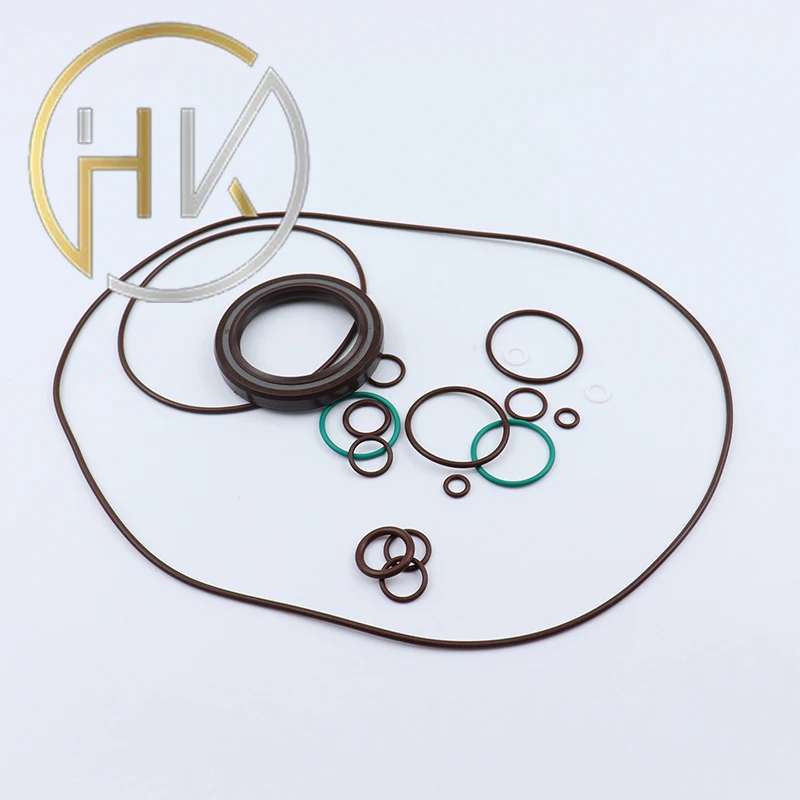Nov . 09, 2024 00:54 Back to list
Understanding the Importance of Rotary Shaft Seals in Machinery Performance and Longevity
Understanding Rotary Shaft Seals Essential Components for Machinery Efficiency
Rotary shaft seals, often referred to as oil seals or rotary seals, play a crucial role in the functionality of numerous mechanical systems. They are essential components that help retain lubricants and prevent contaminants from entering the machinery. This article explores the importance of rotary shaft seals, their types, applications, and best practices for selection and maintenance.
What Are Rotary Shaft Seals?
At their core, rotary shaft seals are elastic sealing devices installed around the rotating shaft of machinery. These seals are engineered to prevent the leakage of fluids—typically oils or greases—while simultaneously keeping dirt, dust, and other contaminants at bay. They come in various designs and materials, most commonly rubber or polymer blends, to accommodate different operating environments and types of fluids.
Importance and Applications
The importance of rotary shaft seals cannot be overstated. In industrial settings, these seals are critical to ensuring the longevity and efficiency of equipment. They are commonly found in
1. Automotive Applications Rotary seals are essential in engines, transmissions, and differentials to maintain proper lubrication and improve fuel efficiency. 2. Manufacturing Equipment In machines such as lathes and mills, seals prevent hydraulic fluid leaks and protect internal components from grime, thereby reducing downtime and maintenance costs.
3. Pumps and Compressors Fluid handling systems utilize rotary shaft seals to maintain pressure and ensure that the machinery operates efficiently without the risk of contamination.
4. Aerospace and Defense In stringent environments where reliability is vital, rotary seals provide a barrier against environmental factors while ensuring the integrity of critical systems.
Types of Rotary Shaft Seals
Rotary shaft seals come in various types, tailored to meet specific needs
. Some common types include- Lip Seals Featuring a flexible lip that presses against the shaft, lip seals are the most common design. They provide excellent sealing against rotational movement and are adaptable to various shaft sizes.
rotary shaft seal

- Mechanical Seals Often used in pumps, mechanical seals consist of two flat surfaces that rotate against one another, providing a reliable seal for high-pressure applications.
- V-Rings These seals are designed to fit snugly around the shaft and provide a secondary seal, often used in conjunction with other types of seals to enhance protection against leakage.
Selecting the Right Rotary Shaft Seal
Choosing the proper rotary shaft seal is critical to ensure optimal performance and longevity. Factors to consider include
1. Shaft Diameter and Speed The seal must be compatible with the shaft dimensions and the rotational speed to prevent excessive wear.
2. Operating Temperature Different materials withstand varying temperature ranges. Selecting a seal capable of enduring the operational temperatures will enhance reliability.
3. Type of Fluid The chemical compatibility of the seal material with the fluid it will contain is crucial for preventing seal degradation.
4. Environmental Conditions Exposure to external elements such as dust, moisture, and varying pressures should influence the seal selection process.
Maintenance and Best Practices
Proper maintenance of rotary shaft seals is vital for extending their lifespan. Regular inspections can detect wear, damage, or misalignment, allowing for timely replacements. When replacing seals, it's essential to ensure proper installation to prevent leaks. Lubricating the shaft before installation can also help avoid damage during the process.
Conclusion
In summary, rotary shaft seals are indispensable elements in mechanical systems that enhance efficiency, reliability, and safety. Understanding their types, applications, and best practices for selection and maintenance can significantly impact the performance of machinery in various industries. By prioritizing the integrity of these seals, operators can reduce downtime, lower maintenance costs, and ensure smooth operations within their machinery.
-
TCN Oil Seal Metal Ring Reinforcement for Heavy Machinery
NewsJul.25,2025
-
Rotary Lip Seal Spring-Loaded Design for High-Speed Applications
NewsJul.25,2025
-
Hydraulic Cylinder Seals Polyurethane Material for High-Impact Jobs
NewsJul.25,2025
-
High Pressure Oil Seal Polyurethane Coating Wear Resistance
NewsJul.25,2025
-
Dust Proof Seal Double Lip Design for Construction Equipment
NewsJul.25,2025
-
Hub Seal Polyurethane Wear Resistance in Agricultural Vehicles
NewsJul.25,2025
-
The Trans-formative Journey of Wheel Hub Oil Seals
NewsJun.06,2025
Products categories
















